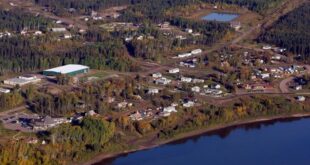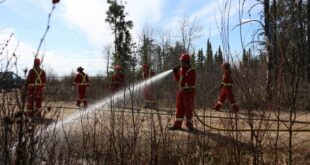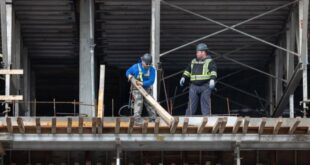Second-generation cut-off rule created in 2009 found to violate Charter rights

Ontario's Superior Court of Justice has ruled it's unconstitutional for Canada to deny automatic citizenship to children born abroad to parents who were also born overseas but have a substantial connection to Canada — a big win for "Lost Canadians" trying to reclaim citizenship rights.
"It's a wonderful Christmas gift," said Sujit Choudhry, a constitutional lawyer in Toronto representing seven multi-generational families living in Canada, Dubai, Hong Kong, Japan and the United States who challenged what's known as Canada's "second-generation cut-off rule."
"It removes a second-class status that people had because of the accident of where they were born."
Choudhry filed a constitutional challenge in December 2021, suing the federal government for denying his clients the right to transmit their citizenship to their foreign-born offspring.
In a 55-page ruling released this week, Justice Jasmine Akbarali found that the second-generation cut-off rule violates the Charter of Rights and Freedoms because it "treats differently those Canadians who became Canadians at birth because they were born in Canada from those Canadians who obtained their citizenship by descent on their birth outside of Canada."
"The latter group holds a lesser class of citizenship because, unlike Canadian-born citizens, they are unable to pass on Canadian citizenship by descent to their children born abroad," Akbarali wrote.
"Lost Canadians" are people who, because of where and when they were born, are caught up in complicated sections of the Citizenship Act.
The second-generation cut-off rule denies the first generation born abroad the ability to automatically pass on citizenship to their children if they are also born outside of Canada.
It was created in 2009 by the then-Conservative government, which faced backlash over "Canadians of convenience," following an $85-million evacuation of 15,000 Lebanese Canadians stranded in Beirut during a war with Israel.
Under the rule, there is no ability to gain citizenship by showing a substantial connection to Canada. Second-generation children must be sponsored by their parents to come to Canada as permanent residents, then apply for citizenship like any other immigrant.
Critics have long said it has created two classes of Canadian citizenship — one for Canadians born in Canada and one for those born abroad.
"The laws, as written, only targeted Canadian citizens. Naturalized Canadians actually had more rights than the other Canadians. This [court ruling] levels the playing field," said Don Chapman, head of the Lost Canadians Society, who has been fighting this battle for decades.
"The court's decision to me is a no-brainer and always would be a no-brainer. But that said, I'm thrilled."
Women disproportionately impacted
In her decision, the judge accepted claims that women are particularly impacted because the second-generation cut-off rule discriminates on the basis of gender — forcing women in their reproductive years to choose between travel, study and career opportunities abroad, or passing citizenship on to their children.
Akbarali referred to the case of Emma Kenyon, born to Canadian parents who were working in Japan at the time.
Kenyon and her husband, Daniel Warelis, a Canadian born in New York, both grew up and went to school in Ontario and Quebec. She got her undergraduate degree at Dalhousie University, while he attended the University of Guelph, and they met in graduate school at the University of Ottawa.
They decided to work for a few years in Hong Kong, which is where Kenyon became pregnant.
In an interview with CBC News, Kenyon said the government's advice at the time was to return to Canada to give birth, but that wasn't an option for many reasons.
"I felt that the government was asking me to make a choice between getting citizenship for my son by traveling to Canada or maintaining my financial and physical health," Kenyon said.
"We had had difficulties getting pregnant and then difficulty staying pregnant. So we're really afraid to travel during COVID…. I wanted to be near my doctor who understood my medical history. We weren't going to have medical coverage in Canada, so I would have been paying out of pocket," she said.
"I explained that I work full time and contributed to my household finances and couldn't just leave my job or request to take an extended leave of absence. My husband wouldn't have been able to come. There was a litany of reasons why this was really, really risky…. And there didn't seem to be any kind of understanding of that."
Kenyon gave birth to their son, Darcy, in 2021.
"He wasn't given Canadian citizenship, so he was born stateless," she said, adding it was scary because "they don't have a country that's granting them protections and rights."

The ‘Lost Canadians’ who fell through cracks of citizenship loophole
1 year ago
Thousands of so-called "Lost Canadians" have lost their citizenship, and in some cases been deported, due to a complicated section of the Citizenship Act. Now, the federal government is trying to pass new legislation to prevent people from falling through the cracks.
Darcy was eventually given Canadian citizenship as the couple prepared in 2022 to return to Toronto — but only after Chapman, of the Lost Canadians Society, made a personal appeal to the federal immigration minister.
"We're very grateful for that, but not everyone knows someone who has connections," Kenyon said. "That's not how a well-functioning system works, and that's not how I think most Canadians would expect the process to work."
Ottawa has 30 days to decide on appeal
The federal government had argued that citizenship is not a Charter right and that the impact of the second-generation cut-off rule was minimal because anyone affected could ask the immigration minister to grant citizenship at their discretion. People can also apply as a permanent resident through a family sponsorship before they turn 22. The judge rejected that argument.
The court has ordered immigration officials to grant Canadian citizenship to the foreign-born children of three of the families involved in the legal case.
It has also given Ottawa six months to amend the Citizenship Act. Federal lawyers have 30 days to decide if the government will appeal.
There is an opposition Conservative bill currently making its way through Parliament that addresses some of the concerns of the "Lost Canadians," but Bill S-245, which would amend the Citizenship Act, is currently stalled because of proposed government amendments.
"We are reviewing the court's decision as well as its impacts on the citizenship program and its operations. A decision has not been taken yet on whether to appeal," a spokesperson for Immigration, Refugees and Citizenship Canada said in a statement to CBC News on Thursday evening.
Bill S-245 is scheduled to be considered on Jan. 29, 2024, although this is subject to change, the spokesperson said, adding that the court decision will be reviewed to determine any considerations related to the legislation.
ABOUT THE AUTHOR
National reporter
Karen Pauls covers Manitoba stories for CBC national news. She has worked across Canada, U.S. and Europe, and in CBC bureaus in Washington, London and Berlin. Some of her awards include the New York Festivals for coverage of the Greyhound bus beheading and a Quirks & Quarks question show, and from the Radio Television Digital News Association for stories about asylum seekers, the Michif language, the Humboldt Broncos bus tragedy, live elections and royal wedding shows. In 2007, Karen received the Canadian Association of Journalist’s Dateline Hong Kong Fellowship and did a radio documentary on the 10th anniversary of the deadly avian flu outbreak. Story tips at karen.pauls@cbc.ca.
*****
Credit belongs to : www.cbc.ca
 MaharlikaNews | Canada Leading Online Filipino Newspaper Portal The No. 1 most engaged information website for Filipino – Canadian in Canada. MaharlikaNews.com received almost a quarter a million visitors in 2020.
MaharlikaNews | Canada Leading Online Filipino Newspaper Portal The No. 1 most engaged information website for Filipino – Canadian in Canada. MaharlikaNews.com received almost a quarter a million visitors in 2020.







